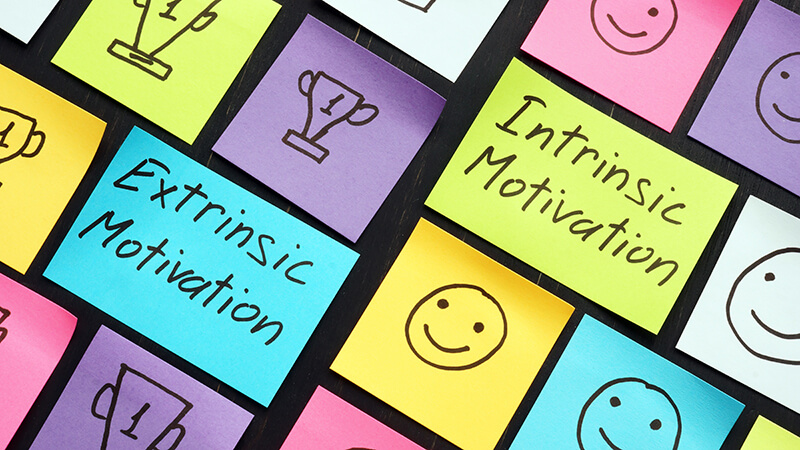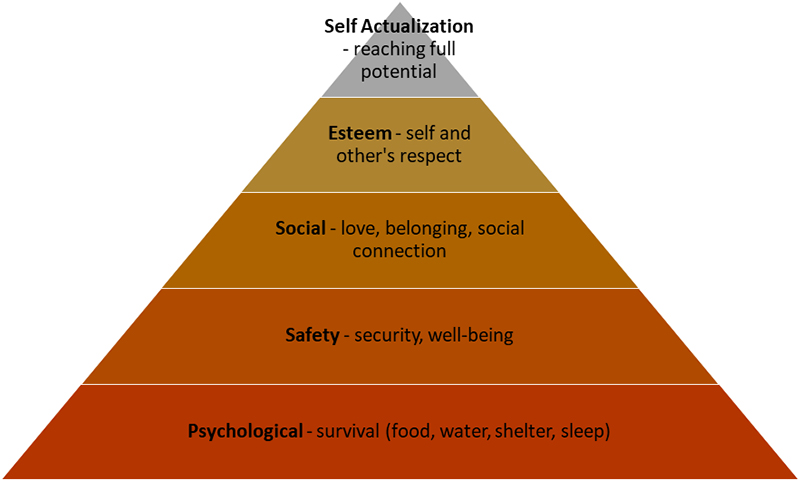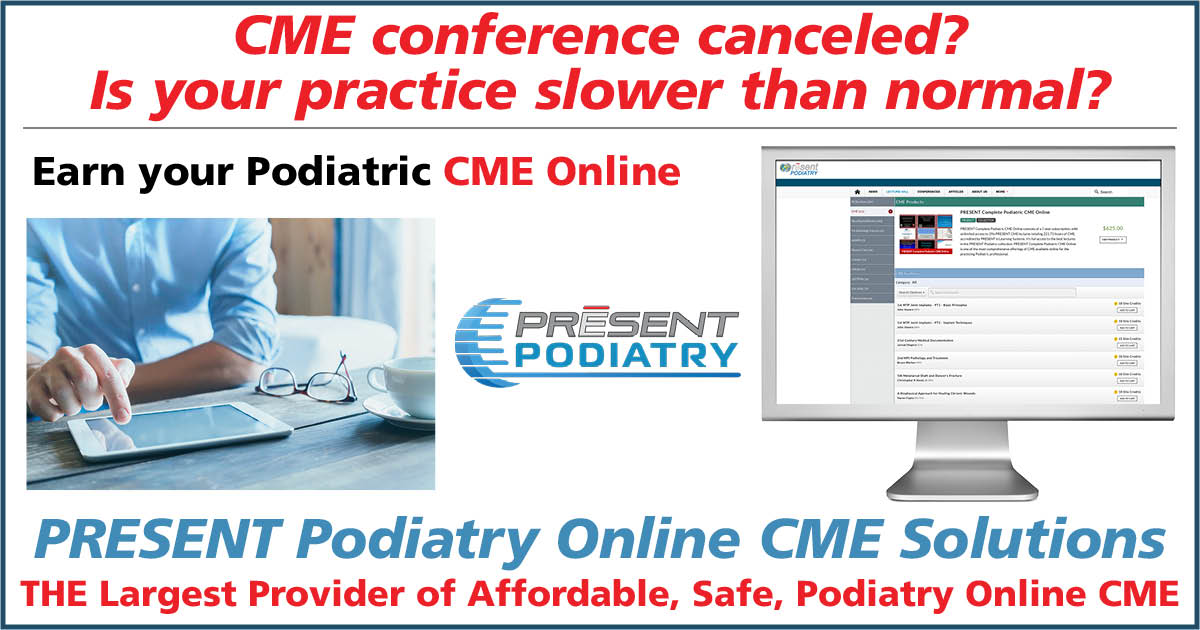
Practice Perfect 698
Motivating Doctors – Extrinsic Versus Intrinsic Motivators
Motivating Doctors – Extrinsic Versus Intrinsic Motivators

In last week’s Practice Perfect, we discussed a few potential rules for creating evaluations of doctors, a difficult job in the best of circumstances. The important question that stems from any evaluation is, “What do I do with the information obtained from the performance review?” In most cases, it seems the information either supports or refutes the monetary raise a doctor receives after the performance review. The equation is essentially Performance Review = Raise or Bonus. But is money really an important, or the most important motivator in physician job satisfaction? Are there other factors that motivate physicians to do their best or to improve? Are there factors that decrease the risk of the ever-present physician burnout? Let’s take a look.
Before we look at physicians specifically, it’s helpful to review Maslow’s theory of needs. He proposed that we are motivated by attempts to fulfill five basic needs, as shown in the image below. Maslow theorized that these needs occur in a hierarchical order, with the bottom of the pyramid needing to be satisfied before the next section can be attained, and it is the unsatisfied need that motivates us. Modern ideas argue these levels overlap each other, and a lower level may take precedence at different times.
It is the drive to satisfy an unsatisfied need that motivates us.

Maslow’s theory is clearly important to understand human motivation, but for most of us in the healthcare industry, we function beyond at least the first two levels (we’re not in a day to day struggle for existence and security), and many of us are beyond the social level, having been married or in long term relationships by the time we graduate from professional school. The real focus for us is on the top two platforms, and these are much more complex to understand.
To understand this in a more concise way, I recommend a TED talk by prior Al Gore speech writer Dan Pink1. To summarize quickly here, he entertainingly discusses two types of motivators: extrinsic (rewards like money or promotions) and intrinsic (autonomy, mastery, and purpose). He shows evidence that extrinsic motivators work well for routine, rote tasks while they fail for tasks that require thought and creativity. He also shows that money is not a good long-term motivator of job performance. Instead, he argues we should be focused on the intrinsic motivators (still recognizing a need for fair pay).
This discussion, arguing in favor of intrinsic motivators, is also present in the medical community. Herzer and Pronovost reviewed how the idea of extrinsic and intrinsic motivators of physician action have functioned in the past with a focus on using intrinsic motivators to improve physician perceived quality2. For those of you who think the name Pronovost is familiar you are correct. Peter Pronovost is famous for his work on checklists in medicine among other movements.
Herzer and Pronovost advocate for giving doctors “complex and interesting health care issues and working collaboratively with other providers and patients to do so.” They argue that we should motivate doctors with opportunities for cognitive sophistication, open-ended thinking, autonomy, and peer-to-peer learning methods with a focus on personal growth and learning.
Opportunities for cognitive sophistication, open-ended thinking, autonomy, and peer-to-peer learning methods with a focus on personal growth and learning are all strong intrinsic motivators for physicians.
Finally, an excellent opinion piece in the Journal of the American Medical Association well describes the current problems using extrinsic motivators like Pay 4 Performance and the opportunities to use intrinsic motivators for physicians3. The table below well summarizes this editorial’s recommendations.
| Table. The Current vs Future State of Performance Improvement Efforts | ||
| Current State | Future State | Example |
| Financial rewards and penalties | Nonfinancial rewards, such as awards, recognition, and reviews | Detailed annual performance reviews at the Cleveland Clinic |
| Focus on physician compensation | Resources for quality improvement and care process investment | Medicare Comprehensive Primary Care Plus Initiative |
| Individual Incentives | Team-based rewards | Department-based rewards in the endocrinology department at the Geisinger Health System |
| Management-driven design and evaluation | Continuous learning and locally determined targets | The "give a darn" method for identifying quality improvement measures at Providence St. Joseph Health Practice Pattern Variation Analyses at Blue Cross Blue Shield of Massachusetts |
| Remote, Faceless, centralized accountability | Local culture and organizational responsibility | The Leadership Saves Lives collaborative |
Creating positive motivators for not only physicians, but all healthcare workers, is a highly complex issue and clearly beyond the scope of this editorial, but this is definitely worth our time if we want to keep physicians happy, healthy, and productive.

-
Pink, D. The Puzzle of Motivation. TEDGlobal 2009. www.ted.com/talks/dan_pink_the_puzzle_of_motivation#t-789564. Last accessed March 8, 2020.
Follow this link -
Herzer KR and Pronovost PJ. Physician Motivation: Listening to What Pay-for-Performance Programs and Quality Improvement Collaboratives are Telling Us. Jt Comm J Qual Pat Saf. 2015 Nov;41(11):522-528.
Follow this link -
Khullar D, Wolfson D, Casalino LP. Professionalism, Performance, and the Future of Physician Incentives. JAMA. 2018 Dec 18;320(23):2419-2420.
Follow this link



























Comments
There are 1 comments for this article
Doctor's are considered having a special role in society as defender's of health - changing careers is seen by some as turning your back on and abandoning the health needs of the community. Feedback from lay people is usually one among great puzzlement and an unspoken question about whether you're being forcibly de-registered. Pride, fear of loss, fear of failure, family welfare, poor self-confidence and private circumstances all affect our decision to plan to change. Regards, https://essayservices.org/